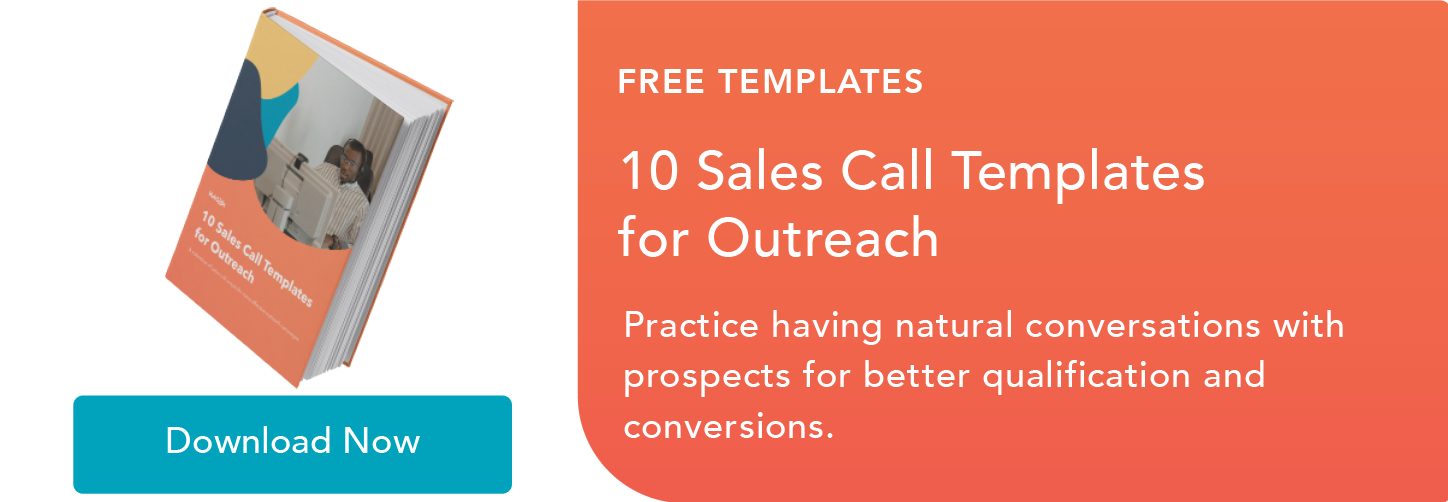In this article:
- What is a closing call?
- Why is the closing call so important?
- How to Prepare for a Closing Call
- How to Run a Closing Call
- Closing Call Strategies
- What to Do After a Closing Call
What is a closing call?
A closing call is the final call between you and a prospective client. In a closing call, you expect your client to say yes (or no) to your offer.
Before you get to the closing call stage, you will have invested a lot of time and effort nurturing your client. The sales process usually involves meeting the client, understanding their needs, scoping the project, and sending the quote.
You may have even responded to feedback and edited your offer to suit your prospective client’s needs.
All previous efforts rest on the success of the closing call and how effectively you, as a salesperson, can lead your prospect and seal the deal.
Why is the closing call so important?
Your prospect is probably feeling as much stress as you. They’re spending part of their budget on your product and need to realize ROI sooner rather than later. In addition, if they acted as an internal champion for your product, there’s a risk they’ll look stupid if things don’t work out.
Your closing call is the final opportunity to put your prospect’s nerves to rest and prove that you’ve got what it takes to look after them.
I always do prep work before I enter a closing call. This ensures that I’m ready to address anything that might arise during the conversation.
How to Prepare for a Closing Call
Preparation is key. By preparing for your call, you’re pre-empting your prospect’s queries or needs. You’ll feel more confident and calm, which can only help you succeed.

1. Look after yourself first.
There’s nothing like a good night's sleep and a relaxing morning to put your mind in a great place for a closing call. Before the call, aim to give yourself some time to relax. You want to avoid working late and an overactive mind — running through your strategy at 2 a.m. isn’t going to help.
Prepare your work days before your closing call and take the evening before the call off so you can get yourself into a positive mindset.
If you commute, get to work a bit earlier than normal so you can settle into the day. Try to avoid extra stressors if you can. For example, if your emails can wait until after the call; let them wait. The last thing you need is something else on your mind distracting you from your prospect.
2. Know your attendees.
You’ve been talking to your prospect for a while now — shouldn’t you already know the stakeholders?
Yes, you should. But as a salesperson, you’ll always talk to multiple prospects simultaneously. The last thing you want to do is mix up your accounts or bring up an anecdote another prospect told you.
Do a thorough memory refresh on everyone you expect to attend the closing call. A quick look at LinkedIn and previous call notes go a long way to helping you recall each stakeholder’s personality and communication style.
Doing this brings an important human element to the closing call. Yes, it’s a business transaction, but never forget you’re talking to real people with real emotions and problems.
3. Review your prospect’s needs.
This is less of a preparation item than a gut check for you. If you don’t understand exactly which product your prospect needs and what value they’ll get, it’s too early to run a closing call.
If your prospect’s needs are particularly complex, preparing a short presentation or outline of that information can be helpful. Use this collateral at the beginning of your closing call to ensure you and your prospect are on the same page about their needs.
4. Prepare to bring added value.
Your prospect is likely talking to other vendors, so you want to ensure you’ll stand out. Your prospect has a tough decision, so be prepared to make your company the obvious choice.
Since you’ve already scoped the project, you probably don’t want to be adding on extra work. Instead, focus on soft skills or added value from the team.
For example, are you using great software to manage a project? Do you have a particularly strong customer service team? Or maybe your product or offering has a USP like no other.
Whatever it is, be prepared to give your prospect more without pushing out of your already defined scope.
5. Get the scoop from your coach.
If you work for a B2C business, this step might not apply. But if you’re in the B2B game, a “coach” within the prospect's organization is an invaluable resource.
A coach is somebody at your target company who can give the background on your points of contact and will generally keep you updated on how things are going on their side of the world.
The best way to address objections during a closing call is to anticipate them, so use your coach as a resource to spot potential blockers before they happen.
When I review a deal with my coach, I ask these three questions:
- Why would my prospect buy my product?
- Why wouldn't they buy my product?
- What are the three objections that I might hear, and how should I address them?
6. Understand your bottom line in advance.
I don’t like to offer a discount unless I get something back. Your give should be logical and meet the needs of both parties. Make sure you’ve spoken with your manager and finance team before the closing call to know where you can bend and at what point you need to leave a deal.
Remember that relying on discounts to close a deal is not good for you or your prospect. The key is to make the conversation about value — price should never be the focus.
How to Run a Closing Call
Running a closing call is always a bit nerve-racking — after all, a lot rests on this final meeting. Here’s a step-by-step guide to everything you can do during the closing call.

1. Don’t forget introductions and pleasantries.
If your closing call meeting involves new team members, make sure they’re introduced to the prospect and vice versa.
If the new team member brings particular expertise, introduce them with their professional skills. Your prospect deserves to know who they’re sharing their business with, why, and what the new person brings to the table.
If you're meeting in person, offer your prospect a drink and ask if they need anything before you begin as part of the pleasantries.
2. Bring an agenda.
Whether you’re on the phone or meeting in person, it helps to have an agenda. Write the agenda and give it to attendees or lay it out before the meeting.
You’ll demonstrate that you’re capable and have everything in hand, which will help the discussion move as you want it to.
Closing Call: Meeting AgendaMeeting date:
Meeting time:
Attendees:
Introductions
- [Prospect] meet [Name] and [Name].
Proposal discussions
- Go through the proposal
- Discuss any particular items of interest
Brief discussion on project requirements
- Preemptive steps required from [Prospect]
- Preemptive steps required from [Your team]
Agree on project kick-off
- Discuss the ideal kick-off date for [Prospect].
AOB
- Opportunity to discuss any other business related to the call, not covered by the agenda
Next steps
- Outline all next steps
3. Take notes.
During the closing call, you’ll want someone present to take notes for you. The last thing you need is to be distracted by writing items down, so have someone in the meeting to do so. Their notes will form part of your actions once the meeting has ended (tips for that below).
4. Set a goal for the call.
Your goal is to close the sale. But get even more specific than that.
Do you know all the details of what your prospect wants to buy? Their target start date? How many units of your product do they need? If your company is subscription-based, how many months upfront are you looking for?
Hammer out all the picky points around the close before you get on the phone.
5. Listen.
You might know exactly what your prospect needs. Regardless, they need to feel heard. Give your prospect plenty of opportunity to talk and share their thoughts and feelings toward the offer.
Don’t interrupt them, and try not to assume. Respond to their points with genuine care.
Although you’ve designed an agenda for the meeting, be sure to offer a space where your prospect can add any talking points.
6. Handle concerns and negotiations.
There’s every chance your closing call will be seamless with little to no objections, especially if you or the sales team have been in close contact with the prospect throughout the sales process. However, be prepared for some pushback. Your prospect may have questions or items within your offer they’re not completely on board with.
How well you handle pushback and negotiations will depend entirely on what you do and how well you prepared before the closing call.
7. Be yourself.
Amidst the pressure of a closing call, it’s easy to lose your head and crumble under the nerves.
The thing to remember is that you’ve made it this far with the prospect. Clearly, they already like you. Working with a vendor to the point of a closing call can be laborious. It’s hard work on both sides, and your prospect wouldn’t do it unless they were serious.
When it comes down to choosing a vendor, your prospect will choose someone they really like. So, bring your best self, the assertive self that drove the project this far, and act as you have done throughout the process.
Yes, professionalism is of utmost importance, but if you and the prospect have been able to crack a joke or talk about the weekend before the call kicks off, there’s no need to change anything.
8. Stay in control.
If you’ve got an agenda, it should be fairly easy for you to keep the conversation moving. You also need to steer the client to a final decision. You can do this with several closing strategies.
Closing Call Strategies
There are many closing strategies to help make the call a success. Your chosen strategy will depend on your prospect, their personality, your relationship, and their needs.
Don’t underestimate the importance of rounding out your closing call. Call Centre Helper spoke to 30 professionals who said the following steps were vital when closing the call:
- Give a basic summary of the call.
- Say what happens next.
- Ask if the customer has any queries.
- Finish with a courtesy statement.

You may need to tweak the statement below to match your brand voice and tone, but to help nail the final close, we’ve provided some example closing statements.
If the deal is closed…
“I couldn’t be happier that you’ve signed up today, [Name]. We’re going to do great work together!”
This line is perfect if the deal is sealed within the closing call. It shows appreciation for the client and shares excitement for the project/partnership ahead.
If the prospect rejects your proposal…
“I’m so sorry to hear about this, [Name]. Is there anything we can do to resolve your concerns for you? The team and I were very confident about our prospective partnership.”
When a prospect rejects a proposal, it’s disappointing, but it doesn’t always mean the deal is over. If you can get to the root of the problem, you might surprise your client and resolve their anxieties. This example reinforces confidence in your team's ability.
If there’s more to do…
“It was great to meet with you again, [Name]. I/[Name] will follow up with [task] in the next [time].”
If there are actions on your side, reassuring your prospect that you will do them and by when is important. Once you give your prospect a deadline, you must meet it.
If the client has actions…
“It was great to meet with you again, [Name]. If we could get [task] over to us by [date] that would be really helpful.”
Before you close with this statement, it’s important that the actions for the prospect were discussed during the call. It would be best to ask them when they can complete their actions before making assumptions.
Use this statement to reinforce the most important actions.
What to Do After a Closing Call
What you do after a closing call is just as important as what you did during. You don’t want your prospective client leaving feeling uncared for or starting to experience buyer's remorse. Here’s what you should do to keep your client happy.
Follow up with an email.
Follow up with an email within 24 hours, if not the same day. The email should thank your prospect for their time and share your genuine excitement for the project or partnership.
Your email template might look something like this:
Hi, [Name],
Thanks so much for the call today. It was great to chat with you again.
Attached to this email are the meeting notes. If you scroll to the bottom, you’ll find the next steps. We’ve already started work on [task] and, as promised, that will be with you by [date].
For ease, the tasks for you are:
- [Task with date]
- [Task with date]
- [Task with date]
Please don’t hesitate to get in touch if there’s anything else. The team is excited to work with you!
Kindest regards,
[Your Name]
Pro tip: Include a professional version of the meeting notes; make sure they’re edited so they make sense and are grammatically correct.
Complete your next steps.
If you agreed to do anything in the meeting, you must complete your tasks to the highest possible standard at your earliest convenience. If you start to let the client down now, they will think twice about their decisions to hire you — so be extra astute.
Be on your A-game for this prospect.
If at any point your prospect calls with questions or queries, answer as soon as possible with the highest level of professionalism.
Your after-sales process is what your prospect will come to expect of you. If it’s poor, they might regret their decision and decide to not work with you.
Start closing better today.
Closing calls don’t have to be scary. In many cases, they’re just a formality. If you’ve run a tight, effective sales process, your prospect should thoroughly understand what they need from you and how to get it. So make sure you end strong, and prepare to run great closing calls.
Sales Closing





![Sales Close Plan: The Best Tool to Close Way More Deals [Template]](https://53.fs1.hubspotusercontent-na1.net/hubfs/53/sales-close-plan-1-20241125-8524726.webp)


![How Close Rates are Shifting in 2024 [New Data]](https://53.fs1.hubspotusercontent-na1.net/hubfs/53/close-rate.webp)
![Sales Pros Say This Tool is Key to Driving Sales: How to Close More Deals With It [Data]](https://53.fs1.hubspotusercontent-na1.net/hubfs/53/85_Best-Sales-Strategies.png)


